For many visually impaired web users, screen readers are an important tool to access web content. So, when Guillermo Robles, who is blind, was unable to use his screen reading software to order a pizza from Domino’s, he decided to take action. And, in an exciting turn of events, the Supreme Court has weighed in; they will not be hearing Domino’s website accessibility lawsuit case.
Article continued below.
Stay on top of web accessibility news and best practices.
Join our email list to get notified of changes to website accessibility laws, WordPress accessibility resources, and accessibility webinar invitations in your inbox.
Domino’s v. Robles Overview
Domino’s has both a website and mobile app for ordering pizzas. According to Robles, he attempted to order a custom pizza twice, but was unable to do so because Domino’s website and app were not accessible, even with a screen reading software.
Robles sued on the grounds that Domino’s was violating the Americans with Disabilities Act (ADA), as Domino’s has physical business locations. The ADA, created in 1990, states that businesses must make accommodations for individuals with disabilities. But Domino’s argued that the ADA did not apply to their website or mobile app, and that applying those changes to their web content violated their fair notice rights.
However, a federal courts appeal sided with Robles, and the Supreme Court has now weighed in.
The Supreme Court Decision
On October 7, 2019, the case of Domino’s LLC v. Robles, Guillermo, was added to the list of cases under the title “CERTIORARI DENIED,” or Cert Denied, in layman’s terms. This means that the court will not even consider the case. Therefore, they will not be giving any decision or ruling one way or another.
So, why is it good news that the Supreme Court weighed in on Domino’s website accessibility lawsuit? Well, there are a few reasons.
First, it means that the opinion of a federal appeals court in the Ninth Circuit was upheld. This court stated that Robles, and other individuals with disabilities, could, in fact, sue under the ADA when it came to websites and mobile apps. This is exciting news for supporters of inclusion and accessibility.
Now, the appeals court in the Ninth Circuit did not say whether Domino’s actually violated the ADA. But the Supreme Court decision also allows the Domino’s v. Robles case to return to the trial court. This trial court will be able to decide whether Domino’s website and app violated the ADA. Once again, this is a great step forward in supporting individuals with disabilities and their right to accessible web content.
What’s Next for Domino’s v. Robles?
Now that the Supreme Court has decided not to hear the case, there are a small number of ways that it can proceed. First, Domino’s could decide to keep fighting, and a trial court will hear the case. This trial court, as we noted above, does have the power to decide whether or not Domino’s has violated the ADA. The two parties could also reach an agreement and settle the case without a trial.
In any case, this brings a light to the considerations that web developers and content authors may or may not be taking into account. Of course, not every accessibility error results in a full website accessibility lawsuit, but they can prevent users from understanding or engaging with your content.
If you want to ensure that your web content is in line with accessibility guidelines and standards, we can help. Just reach out to us to get started! We have a variety of packages available to provide you with everything you need for a website you can be proud of.
